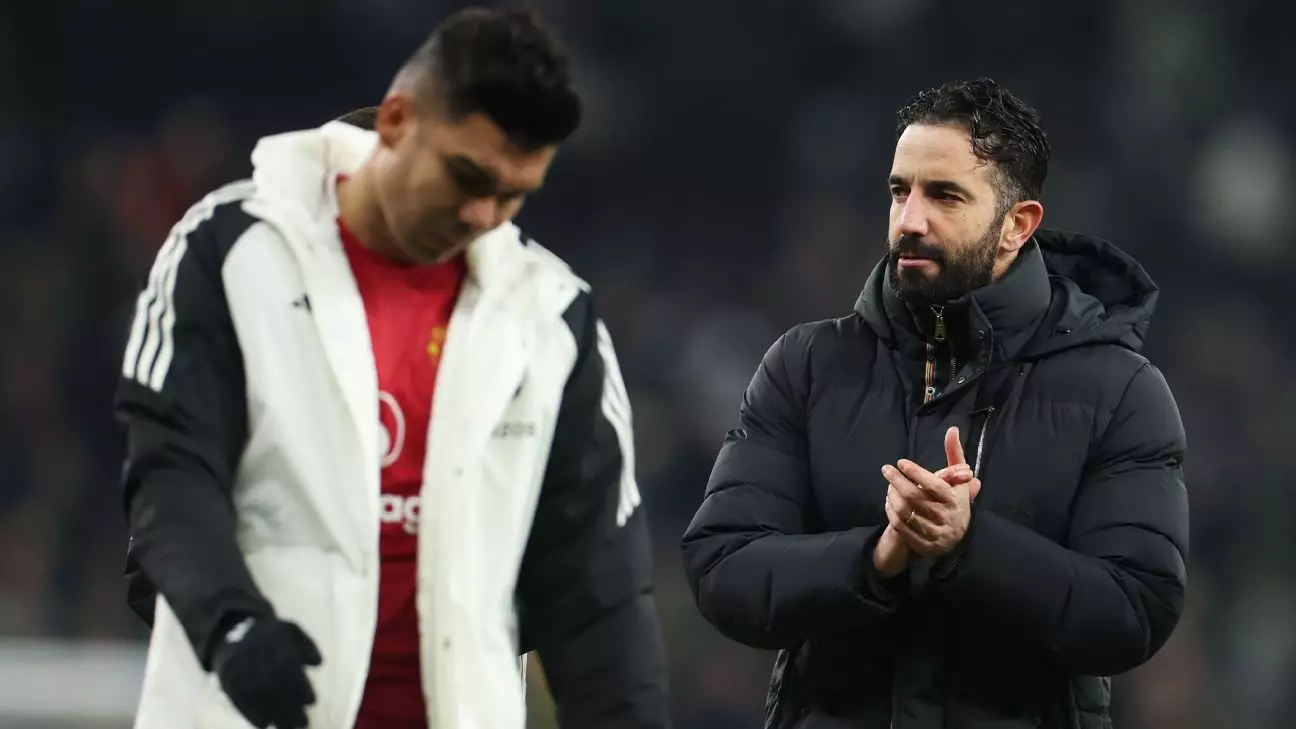Ruben Amorim finds himself navigating turbulent waters as the new manager of Manchester United. After the club’s recent 1-0 defeat against Tottenham Hotspur—their 12th loss in the Premier League this season—United’s position has become precarious. Dropping to 15th place, the pressure is undeniably mounting, and there are questions about whether Amorim can restore the team back to its previous glories. Despite his record of only six victories in 14 league outings since taking over from Erik ten Hag, Amorim remains publicly perplexed by the emphasis placed on his job security rather than the team’s performance.
Emotional Toll and Team Morale
Amorim has expressed that while he is not worried about his own future, the team’s current standing deeply concerns him. His comments reveal a managerial philosophy that puts player welfare front and center. “It is the hardest competition in the world,” he noted, highlighting not only the physical challenges faced by his squad, given the injury crisis but also the mental hurdles that come with a series of disappointing outcomes. His focus is shifted from individual job security to a collective aim: winning games and elevating the players’ spirits.
The emotional toll of repeated losses can weigh heavily on a team, and Amorim understands that frustration is palpable among fans and players alike. His relationship with the media is equally challenging, as he confronts outside pressures and scrutiny while aiming to foster a positive environment inside the locker room.
One of the most telling elements in Amorim’s analysis of the match against Tottenham was his acknowledgment of the fine lines that often dictate the outcomes in competitive football. Despite Manchester United having several opportunities, including a significant miss by Alejandro Garnacho, it became evident that the small margins between a draw and another defeat could become a defining factor in their season. “We had the opportunities… but in the end, they scored and we didn’t,” Amorim lamented, underscoring that issues with finishing and decisiveness are at the heart of their struggles.
Furthermore, the loss of key players has been a blow to team dynamics. Amad Diallo’s season-ending ankle injury is emblematic of the fragility within the squad, and Amorim found himself relying on an untested bench filled with youngsters. This limitation raises questions about depth and strategy moving forward, especially as United prepares for their next challenge against Everton.
All eyes will be on United’s showdown with a rejuvenated Everton side next Saturday. Amorim’s challenge will be to instill confidence in his players while balancing the pressures of performance. How he tackles this upcoming match could very well define the immediate future of his tenure. The resilience of the squad will be tested, but Amorim’s emphasis on focus and unity may prove to be pivotal. For the fans and the footballing community, the hope remains that Manchester United can claw their way back into contention and that Amorim’s tenure will ultimately resonate with success rather than disappointment.

